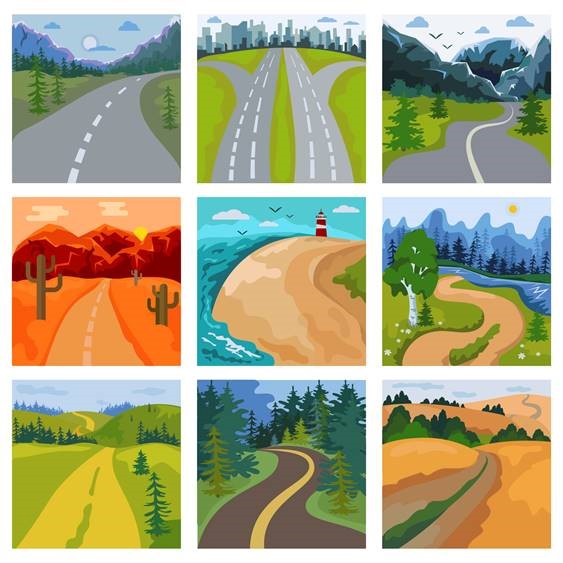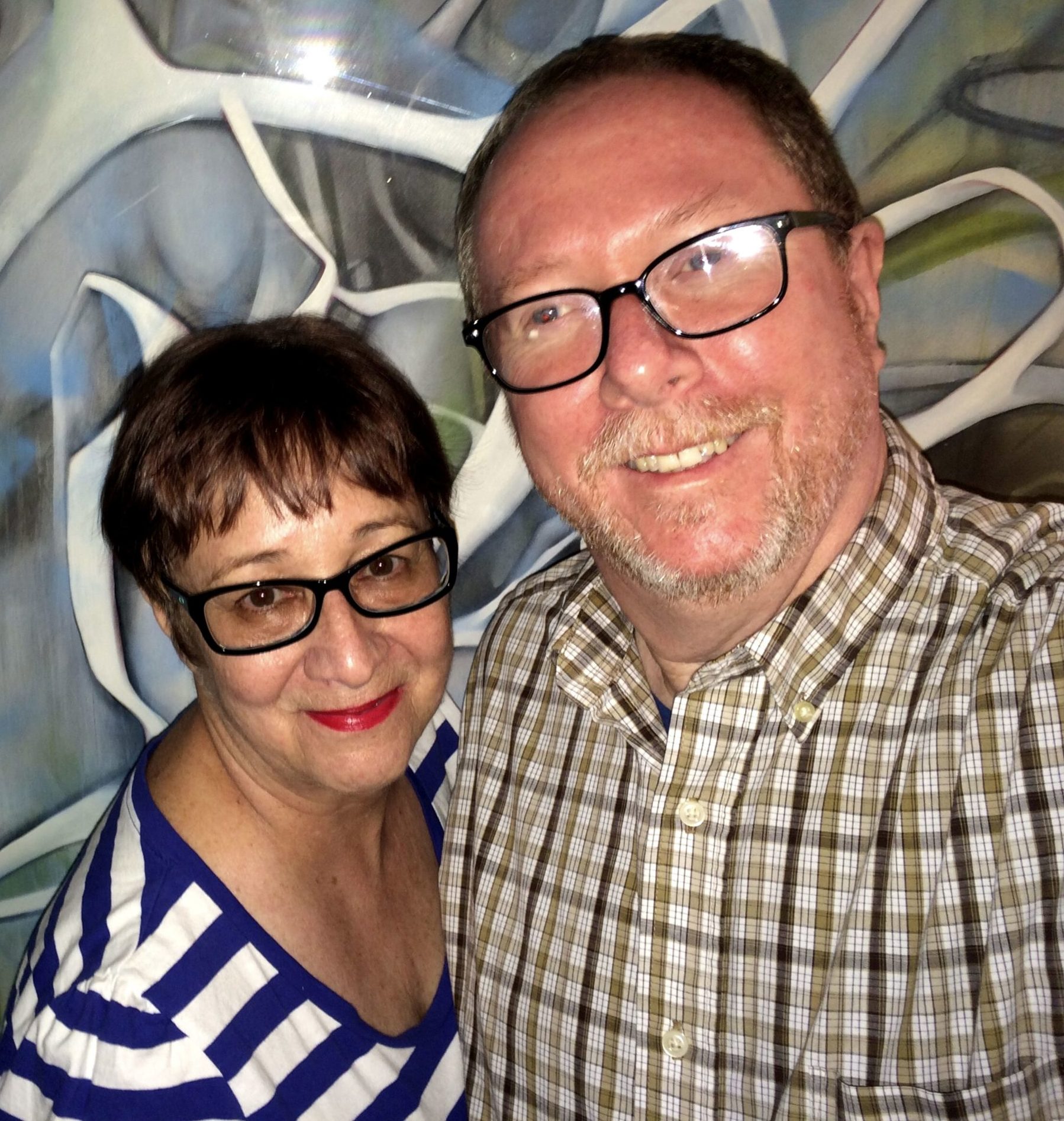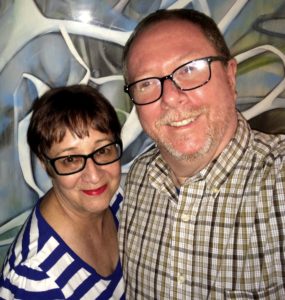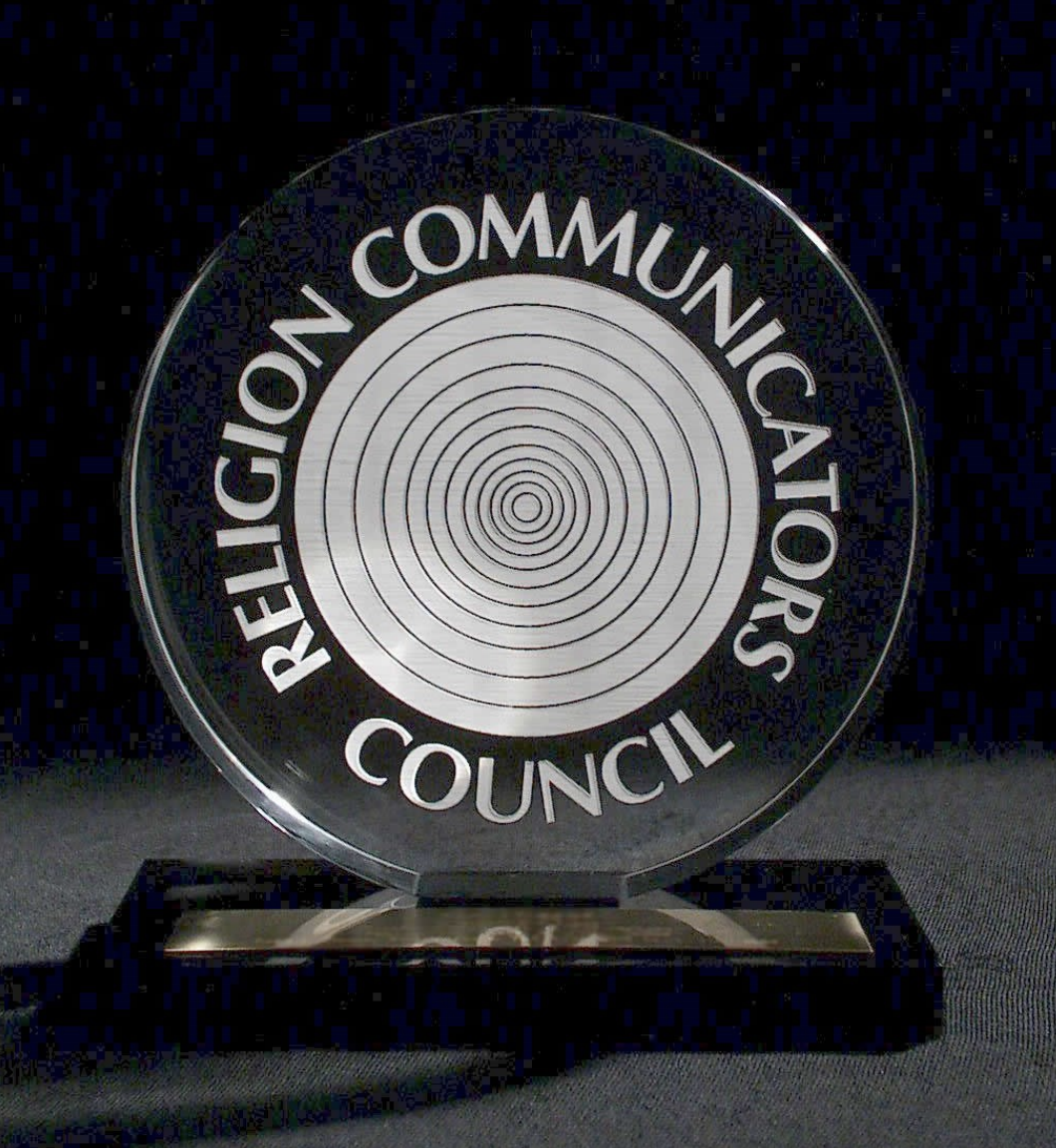
Profile: Baha’i and his community learn together how to navigate hearing loss

By John Rehling

My father served in the US Air Force in WWII, the Korean War, and the Vietnam War, so we moved a lot. Right after I was born in 1958, the family—Mom, Dad, and five kids (I was the youngest)—spent five years in England. We returned to the United States in 1963, which was a significant year in the development of the Baha’i Faith. It was the year the Universal House of Justice, the international governing council of the Faith, was formed. It was also the year the Rehling family was introduced to the Baha’i Faith.
My dad’s Commanding Officer, Colonel John McHenry II—who actively taught the Faith with his wife Elizabeth in Japan, Korea and Taiwan; also serving there on Local and National Spiritual Assemblies — invited my parents to a fireside, an informal discussion about the Baha’i Faith. My dad went because he felt obligated to his CO. My mom went because she was intrigued. They took to it quickly, Mom especially. My parents became members of the Faith and we children were then raised as Baha’is. My mom was diligent in our Baha’i education. We attended Baha’i schools, conferences, devotional meetings, and hosted gatherings in our home on a regular basis, which I always participated in. At a fireside she arranged in a clubhouse, I recall first meeting Ruhiyyih Khanum Rabbani, a leading Baha’i, who was the guest speaker. The two kept in touch over the decades. Rabbani visited my mom at one point while mom was pioneering (teaching the Faith and serving the communities) in the South Pacific. My sisters and I also visited mom and stepdad in Tinian [one of the Northern Mariana Islands].
My dad was a combatant in two wars, which took its toll on him, and resulted in my parent’s divorce when I was in the 10th grade. By then my older siblings had married and moved away, so it was just me and my mom living in Southern California.
Due to our frequent moves, I attended six different high schools. I found it difficult to make and keep friends aside from the Baha’is we would see at events and conferences. During my late high school and early college years my mom, stepdad, and I pioneered on the Pala Indian Reservation; challenging for a gawky high school kid to live in a tent then trailer for a couple of years. I started attending college classes during my junior year in high school, which allowed me to graduate a year early.
At the time, one of my favorite television shows was “The Six Million Dollar Man.” The ideas in the show — bionics, emulating nature — inspired the direction of my intellectual passion, education and career, from Bio-Engineering to Computer Science. This directly led to me, during college, being recruited by the government to develop computer adaptive software.
In 1989, I accepted an invitation to a Thanksgiving dinner at my cousin’s home. That day was a true blessing from God and changed my life significantly for the better: my cousin had also invited his friend from Los Angeles, Susan. Immediately, she and I knew we were meant for each other. We talked about the Baha’i Faith from day one. Susan wanted to know all about it. We married a year and a half later, and then the following year, Susan became a Baha’i.
My attraction to the Faith had always been practical and intellectual. The Faith made sense and answered the questions I had: Why do we exist? What is our purpose? What is the nature of free will? How are science and religion compatible? Is it okay to spend resources on space exploration when there are economic needs on earth? (A question I asked my mom during one of the Apollo moon missions.) Do other planets have life? How do you resolve evolution and the appearance of the human soul?
Susan’s attraction to the Faith was mostly for love of Baha’u’llah, and how His Teachings could better humanity. Susan has given me a better connection to the Faith, and I have become a better Baha’i because of her.
After we were married, we stayed in San Diego County, but moved frequently for work. In 1993 I became a video game programmer. It’s also the year I started gradually losing my hearing.
In 2000, I underwent what was supposed to be a simple, corrective surgery, but it did not go as planned. There were sudden, devastating results: 80% hearing loss, aggressive Meniere’s Syndrome, and other complications. Meniere’s affects the inner ear, causing chronic dizziness, nausea, ear-ringing and pain. For me, episodes are triggered mostly by sound and low air pressure, so I can’t travel by boat or plane, and have to avoid noisy environments. For a year I couldn’t work, until I found a way to manage the frequent episodes.
After that, although my employment was fairly steady, and has been since, I had been laid off from one company, severely harassed at another, and denied employment at a third because of my hearing disability. While all of these actions are illegal in the workplace, I discovered they are a reality, regardless.
I believed there had to be a reason for my hearing loss and suffering, but I still whined “Why me? What did I do to deserve this?” I prayed a lot more, and gradually attained a more spiritual connection to my faith.
Lots of faith and sincere prayer led me to an outstanding new job and company. I now work on robots (remember The Six Million Dollar Man?) and advanced computer graphics. Meeting Susan and getting into this job are absolute proof to me of the love of God and the power of prayer.
In North San Diego County, where I live, the Deaf community makes up about 10% of the population. Naively, I thought I was in a good position to be a bridge between the cultures, growing up hearing, but becoming deaf, allowing me to educate the Baha’i community on how to embrace the Deaf community.
Interacting with my Baha’i friends became a challenge. They knew me best when I could hear. Most haven’t adapted to non-hearing-John. Little by little I felt more and more alienated from Baha’i community life.
Susan and I had started a successful Sign Language club at a local library. (And we wanted to share that success with a wider group that included our Baha’i Community.)
We hosted Deaf-friendly devotional gatherings, study circles, and discussion groups. Whenever Susan and I hosted Baha’i events, they were accommodating to the Deaf and Hard of Hearing. Here is a list of accommodations we made:
- provide a written program so people knew what to expect and when
- provide printed copies of readings
- remove objects such as tall flowers that obstruct views
- gather in a circle, so everyone can see each other
- enforce a rule that only one person at a time talk and be recognized before talking
- eliminate background noise
- strategize placement of lighting so no lights shine in anyone’s eyes and so no one has a glaring light behind them
- include prayers in sign language
- be open about people’s hearing limitations
In 1997, the North San Diego County Baha’i communities organized a Baha’i Sunday School, named Divine Image Baha’i School—DIBS. Susan and I were involved from the start;
I started by occasionally helping Susan with her classes, as a guest. I would also teach the children about Sign Language. This evolved into being a consistent co-teacher with Susan, using Ruhi and Core Curriculum, including science and art. But fundamental in our classes was teaching American Sign Language (ASL), prayers in ASL, and teaching how to interact with deaf/hard of hearing people. DIBS had been a soul-saver for me. Teaching with Susan at the Baha’i school made me feel like I had a place in Baha’i community life. We taught at DIBS together for 17 years.
I recently experienced two highlights of my deafness. The first was reciting a prayer in Sign Language for our local 2019 commemoration of the bicentenary of the Birth of the Bab, Herald of the Baha’i Faith. I collaborated with a Sign Language-fluent friend. Accompanying the prayer “Remover of Difficulties” sung in English and Arabic, my friend recited in American Sign Language, while I recited in Arabic Sign Language—which I learned enough of for the occasion. I felt a strong connection to Baha’u’llah’s teaching of unity in this—that a Baha’i prayer could be recited in four completely different languages simultaneously, in perfect harmony.
The second experience was my collaboration with the Baha’i National Center’s Task Force for the Deaf and Hard of Hearing. I worked with the task force to plan and organize its first Deaf-friendly devotional program (via Zoom, during the recent COVID-19 pandemic), hosted by the Baha’i House of Worship. Although I had only a small role, I was very happy to be able to serve and contribute to this effort. For years, my wife Susan and I tried to bring awareness to the local Baha’i communities of the need to better include the Deaf community. Assisting the task force was a dream come true for me.
I still have challenges as a person with hearing loss: am I deaf or hard of hearing? I don’t hear well enough to interact effectively with the hearing community. I use Sign Language, but am not fluent enough to interact effectively with the Deaf community. But somehow I get by.



